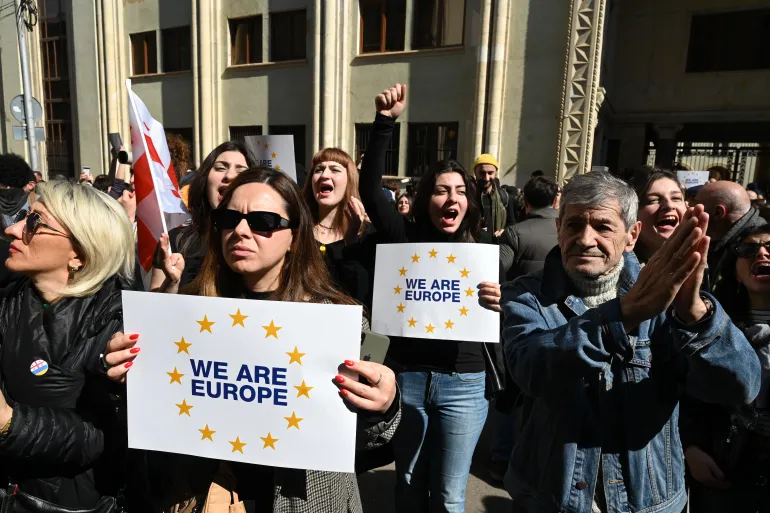In a demonstration of unity and defiance, around 50,000 protestors marched peacefully through the rain-soaked streets of the Georgian capital on Saturday, denouncing a proposed “foreign agents” bill that has sparked a nationwide political crisis. The United States weighed in, warning Georgia of the stark choice between democratic values and aligning with Kremlin-style legislation.
The bill, which mandates organizations receiving over 20% of their funding from abroad to register as “agents of foreign influence,” has galvanized widespread opposition across Georgia. Thousands have taken to the streets demanding the withdrawal of the contentious legislation, which has ignited a rolling political upheaval.
White House national security adviser Jake Sullivan expressed deep concern over democratic regression in Georgia, emphasizing the critical decision facing Georgian parliamentarians. He urged support for the country’s Euro-Atlantic aspirations and cautioned against enacting laws antithetical to democratic principles.
Protestors, waving Georgian, European Union, and Ukrainian flags, flooded the streets, with a notable presence of both older citizens and the youth. Their impassioned voices echoed demands for the government to heed the will of the people and uphold Georgia’s dignity and European aspirations.
Amid chants for freedom and calls to safeguard future generations, demonstrators reiterated their steadfast rejection of Russian influence, affirming their commitment to European integration. The crisis has deepened the divide between the ruling Georgian Dream party and a coalition of opposition forces, civil society, and public figures.
The proposed bill, labeled “the Russian law” by opponents, has raised alarms within the European Union, potentially jeopardizing Georgia’s path to further integration. While Georgian Dream argues the legislation promotes transparency and national sovereignty, critics see it as a tool to stifle dissent and undermine democratic values.
Sullivan condemned Georgian Dream’s recent rhetoric and legislative maneuvers, accusing the party of seeking to sever ties with the West. Despite traditional pro-Western sentiment among Georgian public opinion, the party’s actions risk isolating Georgia from its transatlantic allies, further intensifying the country’s political turmoil.






